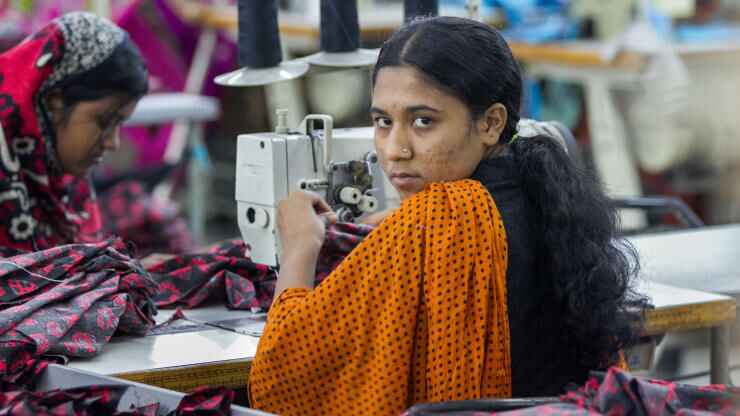Coronavirus triggers collapse in garment industry demand, putting jobs in Asia at risk

Collected
The garment industry is witnessing a collapse popular due to the economical fallout from the coronavirus outbreak, putting jobs across Asia at risk.
“Across the whole industry, shops are closed, brands and retailers actually now have an oversupply situation with whatever orders they have placed. They fear that they may not have the ability to sell it, so they are actually canceling orders or delaying shipments of orders,” said Stanley Szeto, executive chairman of Lever Style, a Hong Kong-based garment maker.
“I assume nobody is lacking a shirt to go out,” said Szeto, who is also an honorary chairman at the Textile Council of Hong Kong.
Lever Style’s customers include Hugo Boss and Everlane.
Asia is key for garment manufacturing and several jobs in your community will be at risk, potentially triggering social problems in countries like Bangladesh, Cambodia and China that are dependent on the export economy, Szeto told CNBC’s “Squawk Box” on Friday.
“A lot of factories in Asia they’re seeing orders dry up in a couple weeks,” he said.
Bangladesh, for instance, has seen $2.6 billion worth of orders in its garment sector withdrawn, with fresh cancellations approaching, the country’s commerce minister told CNBC last Friday. The united states may be the world’s second-largest clothing exporter behind China, according to ratings agency Moody’s.
More than 4,600 garment factories in Bangladesh make shirts, T-shirts, jackets, sweaters, and trousers. The clothes are mostly shipped to Europe, the United States and Canada, to be sold by local retailers in those countries.
“It’s been very, very difficult dealing with all the emergencies because we’ve been facing cancellations every day on almost a minute-to-minute basis,” said Rubana Huq, president of the Bangladesh Garment Manufacturers & Exporters Association.
According to the association, ready-made garments comprised 84.21% of Bangladesh’s total exports worth $40.5 billion in its 2018-2019 fiscal year.
Huq expects a lot more cancellations to come as the industry faces “total uncertainty,” she told CNBC on Monday.
“We submit the export documents and then we receives a commission. If we don’t receives a commission, we can’t actually pay our workers, so it’s problematic for us - even getting through with March salaries is difficult,” said Huq.
“My worry is, what will eventually so many persons - 4.1 million - that are engaged in the garment sector and we aren't being able to take care of them properly,” she added. She made a video appeal to international fashion brands earlier last week, urging them to pay for and receive goods already under production.
“We want the employees to be paid, we wish them to be safe, and for that people need the brands to react and respond at this stage in time - with urgency,” Huq told CNBC on Monday.
Source: https://www.cnbc.com
Tags :
Previous Story
- Covid-19: China will stand beside Bangladesh
- 985 factories including 299 apparel units open
- H&M involves its garment suppliers’ rescue
- Hawaii tourism grinds to prevent as virus restrictions...
- BB to allow clients to settle interbank cross...
- OnePlus, Realme, Huawei, Oppo extend guarantee on mobile...
- Comparing the 11-inches versus 12.9-inch 2020 iPad Pro
- COVID-19: Bangladesh extends ban on all passenger flights...